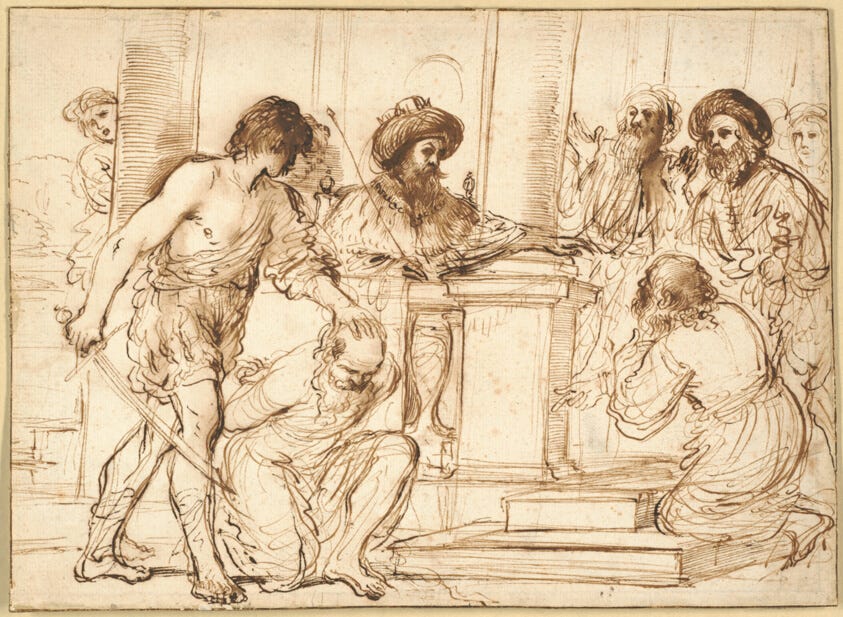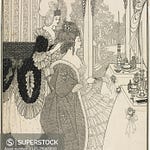Alfred Tennyson, the author of these stanzas that serve for our Poem of the Week, had a friendship the like of which I’ve never had, and maybe it is hard for us, with all our distractions, to understand just how close two young and intelligent and virtuous men can grow, when their personalities are congenial and they share the same enthusiasm for beautiful things, both those that Nature gives us and those that have been made by the mind and the hand of man. But there was more. Tennyson was still a student at Cambridge when his father died, so the lad had to return home to take care of his grieving mother. Home wasn’t really theirs, though. It was a parish rectory, as the elder Tennyson was an Anglican minister; but the church let the family stay on. And that summer, Arthur came to stay with the Tennysons, and that is when he and Alfred’s sister Emilia fell in love, and were engaged to be married. Such happiness was in the offing — what promised to be a lifelong friendship between brothers by marriage, and the deeper love of the man and woman, which Alfred would delight to be in the presence of. And then, suddenly, while he was away in Vienna, Arthur died of a cerebral hemorrhage.
That became the impetus for Tennyson’s greatest work, the book-length poem In Memoriam A. H. H., which took him years to write and write over again, examining not only friendship but human suffering, and Tennyson’s doubts about God and the end and the meaning of life, and his fighting through those doubts back to faith, all the while being as brave and honest as any poet has ever been.
In the three sections I’ve included — ending with one of the most famous stanzas in all of English poetry — Tennyson fights against the notion that Love naturally fades away into indifference, or that difficulties that two friends meet can put a strain on that friendship, or that if you are going to suffer loss, it is better never to have had anything to lose to begin with. The stanzas are deceptively simple: four lines, with four strong beats in each line, but with an unusual rhyme, ABBA, the first line rhyming with the final line, while the second and third rhyme with each other. The result is strangely meditative, because that final line, the one that rounds and completes the stanza, repeats a sound that you haven’t just heard a moment before. You might think that the form would seem repetitive after many pages, but it isn’t, because Tennyson was wise enough to divide the long poem into sections, so that each section feels like a separate poem, with its own characteristic imagery and music. As for that — music — I think nobody was as precise a master of the effects of English sound as Tennyson was.
It is a probing of friendship, then, such as a large-hearted man once felt; and he never ceased to feel it. He named his first son Hallam, and his sister Emilia, when she married, named her first son Arthur Henry Hallam. Pretty generous on her husband’s part, I’d say.
XXV
I know that this was Life, the track
Whereon with equal feet we fared;
And then, as now, the day prepared
The daily burden for the back.
But this it was that made me move
As light as carrier-birds in air;
I loved the weight I had to bear,
Because it needed help of Love:
Nor could I weary, heart or limb,
When mighty Love would cleave in twain
The lading of a single pain,
And part it, giving half to him.
XXVI
Still onward winds the dreary way;
I with it ; for I long to prove
No lapse of moons can canker Love,
Whatever fickle tongues may say.
And if that eye which watches guilt
And goodness, and hath power to see
Within the green the moulder'd tree,
And towers fallen as soon as built,
O, if indeed that eye foresee
Or see (in Him is no before)
In more of life true life no more
And Love the indifference to be,
Then might I find, ere yet the morn
Breaks hither over Indian seas,
That Shadow waiting with the keys,
To shroud me from my proper scorn.
XXVII
I envy not in any moods
The captive void of noble rage,
The linnet born within the cage,
That never knew the summer woods:
I envy not the beast that takes
His license in the field of time,
Unfetter'd by the sense of crime,
To whom a conscience never wakes;
Nor, what may count itself as blest,
The heart that never plighted troth
But stagnates in the weeds of sloth;
Nor any want-begotten rest.
I hold it true, whate'er befall;
I feel it, when I sorrow most:
'T is better to have loved and lost
Than never to have loved at all.Listen to this episode with a 7-day free trial
Subscribe to Word & Song by Anthony Esolen to listen to this post and get 7 days of free access to the full post archives.













